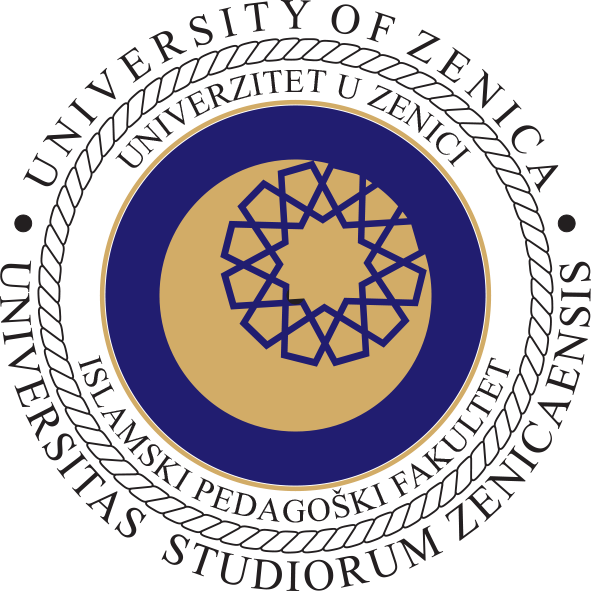ODABRANOST I VRIJEDNOST EHLI-BEJTA
According to the Qur’an and Hadith the Prophet of Allah, Muhammad, peace be upon him, is the most exceptional slave and Prophet of Allah, and his family presents the most exceptional family. Its value is being indicated directly and indirectly by the Qur’an verses as well as by the hadith of the Prophet of Allah, may Allah send blessings and peace ...
By Mensur Valjevac, Mina Valjevac
Alluded meaning of a legislative text (isharat al-nass) in the hanafi school of law
This paper examines the Hanafi scholars’ approach to the alluded meaning (isharat al-nass) of a legislative text, and the implications of such an approach for the legal norms the Hanafis derived through ijtihad. The first part of the paper discusses the issue of possible textual indications (al-dalalat) within a legislative text, and then the conce...
By Šukrija Ramić
Subjects of guardianship of a minor's property in sharia law and family law of the Federation of Bosnia and Herzegovina
The research examinesthe subjects of guardianship of a minor’s property in the Sharia Law and the Family Law of the Federation of Bosnia and Herzegovina. The main purpose of the study is to determine the extent to which the normative solutions regarding the subjects of guardianship of a minor are convergant or divergant in the two legal systems. Af...
By Nedim Begović
MJESTO ŠERIJATSKOG NASLJEDNOG PRAVA KOD BOSANSKOHERCEGOVAČKIH MUSLIMANA U PROŠLOSTI I SADAŠNJOSTI
The main objective of the present paper is to point to the distinctiveness of the tolerant Bosnian legal climate in which for centuries different legal solutions originating from different legal systems have been provided. Thus, in Bosnia and Herzegovina one might encounter equal private law institutes relying simultaneously on Roman-Germanic legal...
By Ajdin Huseinspahić
SAVREMENE LINGVISTIČKE TEORIJE I TIPOVI PREVOĐENJA
This paper is devoted to the process of translation and some of its aspects, such as the key factors involved in the process as well as its different dimensions and perspectives. When translating, the preference is usually given to only one of the factors involved in the translation process, which eventually determines the mode of translation as we...
By Amrudin Hajrić
O FUNKCIJAMA ’ALIFA U ARAPSKOM JEZIKU (AL-’ALIF AL-LAYYINA – FLEKSIBILNI ’ALIF) ON
Classical Arabic philologists analyzed alif more than any other letter. In their works alif was analyzed in the context of its original function, as a sign for consonant hamza, but also as a long vowel sign, which lead to numerous studies and discussions. Given the fact that most of them focused on the analysis of alif as a sign for consonant hamza...
By Mejra Softić
NACIONALNA ORIJENTACIJA ALIJE NAMETKA I NJENA REFLEKSIJA NA NAMETKOV ODNOS PREMA JEZIKU
The purpose of the current paper was to investigate in detail Alija Nametak’s (1906–1987) national orientation expressed in his literary works, and to analyze the circumstances leading to such an orientation as well as its reflection on Nametak’s attitude toward language, particularly with regard to his nomination of language and ...
By Amina Pehlić
ISLAMSKI DOPRINOSI RJEŠENJU RASNOG PITANJA
This paper treats the racial issue, which is present in an entire human history, and contributes to Islamic teachings overcoming and solving this issue. This important topic is present in the primary Islamic sources: the Qur’an and Sunnah, but also in the sira of Prophet, s.a.w.s. and biographies of companions ... Companions of the Prophet, s.a.w.s...
By Esmir Halilović
MEĐUSOBNO UVAŽAVANJE ASHABA I EHLI-BEJTA
Mutual respect between members of Ahlul Bayt and the first generation of companions, as well as in-law relationships and naming each others’ children, recorded in authentic Islamic sources, confirm that there was no conflict or hostility between members of tAhlul Bayt and the companions. Relevant traditional and historical sources challenge and ref...
By Mina Valjevac
ULOGA SOCIJALNOG PEDAGOGA U RADU SA OSOBAMA OVI SNIM O PSIHOAKTIVNIM SUPSTANCAMA (PAS)
It is widely spoken in the world about the problem of addiction, which has become a global problem of humanity, because it destroys the most vital part of the human population- adolescents. Every society, as much as it is financially strong and willing, finds programs, for prevention - to prevent or reduce negative phenomena in society, as well as ...
By Emina Babić, Selvedina Babić, Senada Fejzić, Enisa Piro-Bedaković



